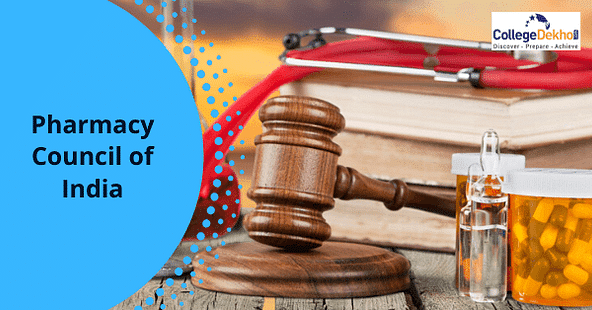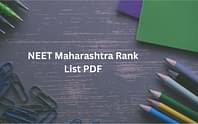Established on 4th March 1948 under the Ministry of Health and Family, the Pharmacy Council of India is a statutory body to help regulate the education and profession of Pharmacy. The PCI is responsible for establishing the qualifications required to become a pharmacist in India.

Roles and Objectives of Pharmacy Council of India: In 1948, the Government of India established another regulating body on the lines of the Medical Council of India , but only for the stream of Pharmacy. Operating under the Ministry of Health and Family Welfare, the Pharmacy Council of India had been established under the Pharmacy Act, 1948, after being passed in the Parliament. The Government of India set up the statutory body for the purpose of regulating the education and profession in Pharmacy in India. Like the MCI, the Pharmacy Council of India or PCI that both education in pharmacy, as well as the profession of Pharmacy, go smoothly and efficiently. The PCI is responsible for regulating and laying the rules for offering a Pharmacy course at any level, i.e. Undergraduate, Postgraduate, Diploma as well as Doctoral levels.
Objectives of the Pharmacy Council of India
Under the Pharmacy Act 1948, the Pharmacy Council of India has been designed to enforce certain standards and regulations, which will ensure a smooth operation of the Pharmacy industry in the country. There are certain defined objectives of the Pharmacy Council of India, which is as follows:
- Uniform Standards in Pharmacy Education
Updating the curriculum to meet the evolving needs of the healthcare and pharmaceutical industries.
- Licensing of Pharmacists
Promoting a uniform standard of qualification for pharmacists throughout India.
- Public Safety and Health
Promoting rational use of medicines through pharmacy practice.
- Professional Development
Facilitating research and innovation in pharmacy education and practice.
- Global Recognition
- Addressing Challenges in Healthcare
Bridging the gap between pharmacy education and healthcare industry requirements.
- Promotion of Good Manufacturing Practices (GMP)
Roles, Functions and Duties of the Pharmacy Council of India
Like all the other statutory bodies under the Government of India, there are certain roles, functions and duties of the Pharmacy Council of India which are to be undertaken. Some of the major responsibilities of the PCI are to ensure that standards are maintained for Pharmacy education in India. Here are some of the roles, functions and responsibilities of PCI as a govt statutory body:
- Section 10 : Prescribes minimum educational qualifications required for pharmacists.
- Section 12 : Grants recognition to pharmacy qualifications.
- Section 13 : Maintains the Central Register of Pharmacists.
- Section 16 : Inspects pharmacy institutions to assess compliance with prescribed standards.
- Section 18 : Approves courses of study and examinations for pharmacists.
Detailed Functions of PCI Under the Pharmacy Act, 1948
| Functions | Details |
|---|---|
| Education Regulation |
|
| Advisory Role |
|
| Promotion of Research and Innovation |
|
| Registration of Pharmacists |
|
| Establishment of New Guidelines |
|
| Inspection and Recognition |
|
| Promotion of Pharmacy as a Profession |
|
| Professional Standards |
|
| Collaboration with International Bodies |
|
| Enforcement of the Pharmacy Act |
|
Role of Pharmacy Council of India in Education
As is the case for every other technical course in India, a statutory body for the regulation of education in Pharmacy allows for a streamlined industry, with minimum standards and quality control measures put in place. In the education sector, the PCI has drafted and implemented various Acts that streamline the entire pharmacy education system. Among Rules and Regulations that have been outlined for courses include regulations for the course structure and syllabus for Bachelor of Pharmacy ( B.Pharm), Diploma in Pharmacy (Pharm.D) and Master of Pharmacy (M.Pharm).
All Pharmacy colleges in India, that have been approved by the PCI to impart education in the field of pharmacy must adhere to the rules and regulations for each course as outlined by the council. These regulations include the subjects that should be studied, the minimum number of internships required for each course, the manner of conducting the annual or semester examinations, weightage of different topics, research papers & thesis along other important parameters that are to met during the duration of a course. These are just some of the parameters that the Pharmacy Council of India supervises and regulates in order to ensure a high quality of pharmacy education in India, thus, resulting in globally-competitive pharmacy graduates.
For those of you who wish to pursue any one of the Pharmaceutical courses at any one of the PCI approved pharmacy colleges in India, then you may fill-up the Common Application Form available on our website.
Related Articles
B.Pharm Entrance Exams in 2025 (State Wise List): Check Exam Dates, Notification & Eligibility | |
|---|---|
B.Sc Nursing Vs B.Pharm Vs BPT - Finalise the Best Course For You |
Still, do you have a doubt regarding the Pharmacy Council of India or PCI? Leave your question on our QnA section and get all your queries answered.
Are you feeling lost and unsure about what career path to take after completing 12th standard?
Say goodbye to confusion and hello to a bright future!

Was this article helpful?


















Similar Articles
Andhra B.Pharma Admission 2025: Seat Allotment Result (Today), Counselling Registration (Over), Web Options, Top Colleges
Seat Matrix for CEE AMPAI WB Colleges: Seat Distribution, Reservation Policy
Uttar Pradesh BPharm Admission 2025: Dates, Application Process, Seat Allotment Result, Eligibility Criteria
D.Pharmacy Admission 2025 in India: Dates, Eligibility, Selection, Fees
Tamil Nadu D.Pharm Admission 2025: Dates, Eligibility, Application, Merit List & Colleges
List of Documents Required for NIPER JEE 2025 Counselling